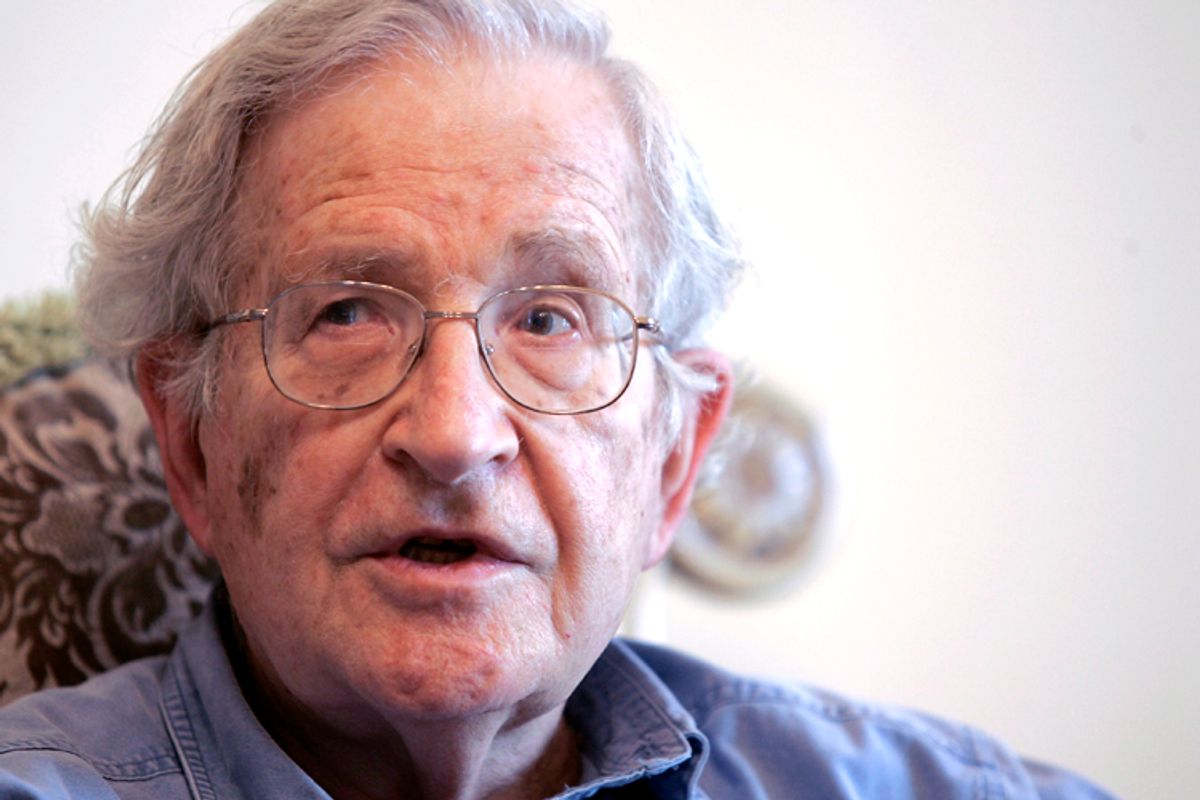The recent diplomatic breakthrough between the United States (and others) and Iran is much less than meets the eye, Noam Chomsky writes in a recent article. Particularly, Chomsky takes issue with the uneven distribution of concessions between the U.S. and Iran.
"The 'landmark accord' indeed includes significant Iranian concessions - though nothing comparable from the United States, which merely agreed to temporarily limit its punishment of Iran," Chomsky writes. "In mainstream discourse, it is considered natural that Iran alone should make concessions...[but] [t]here is a different perspective, little heard, though it might be worth at least a mention."
Chomsky then goes on to lay out a narrative of 10 years of the United States' rejecting appeals from Iran and third parties to find a diplomatic solution to the nuclear crisis: "Ten years ago Iran offered to resolve its differences with the United States over nuclear programs," he writes, "along with all other issues. The Bush administration rejected the offer angrily and reprimanded the Swiss diplomat who conveyed it."
Ultimately, Chomsky concludes, the United States and Israel have been so stubborn in their negotiations with Iran because they fear dealing with a true deterrent in the region, which a nuclear Iran would certainly be. "There are in fact two rogue states operating in the region, resorting to aggression and terror and violating international law at will: the United States and its Israeli client," Chomsky writes. "Iran has indeed carried out an act of aggression: conquering three Arab islands under the U.S.-backed Shah. But any terror credibly attributed to Iran pales in comparison with that of the rogue states."
It is understandable that those rogue states should strenuously object to a deterrent in the region, and should lead a campaign to free themselves from any such constraints.
Just how far will the lesser rogue state go to eliminate the feared deterrent on the pretext of an "existential threat"? Some fear that it will go very far. Micah Zenko of the Council on Foreign Relations warns in Foreign Policy that Israel might resort to nuclear war. Foreign policy analyst Zbigniew Brzezinski urges Washington to make it clear to Israel that the U.S. Air Force will stop them if they try to bomb.
Which of these conflicting perspectives is closer to reality? To answer the question is more than just a useful exercise. Significant global consequences turn on the answer.

Shares